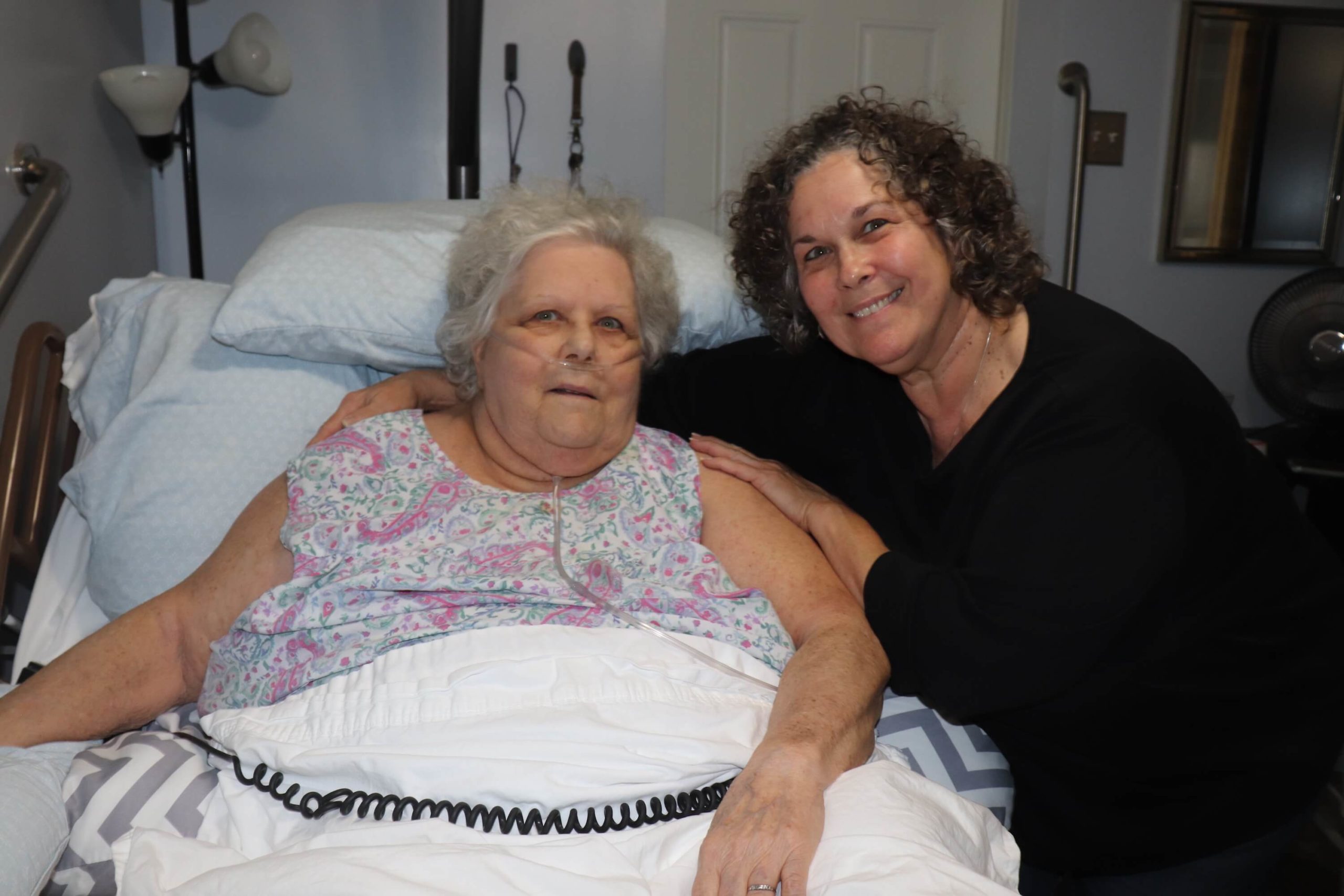
Imagine that the last few months of your life were spent in and out of hospital intensive care units and emergency rooms. Your heart is failing. You’re constantly battling shortness of breath, swollen legs, heart palpitations and dizziness, among other symptoms. You just want to be at home, comfortable, surrounded by the people and the things you love.
Lois Federle, an 84-year-old widow with congestive heart failure, recently decided that she didn’t want to live the rest of her life in an impersonal clinical setting. Instead, she and her family opted for a more comfortable and meaningful end-of-life experience by participating in a new program offered by Hospice of Cincinnati, designed to address the unique needs of people with advanced cardiac disease.
Now, Federle is cared for comfortably in her own home, lovingly tended to by her family and her caregiver, with her attentive pooch “Sweetie Pie” by her side. She said she’s happy with this choice.
“This (being at home) is much better than lying in a hospital bed, pressing a button and waiting for someone to come to you,” Federle said.
Federle is not alone in her medical struggles. One in every four deaths in the U.S. is the result of heart disease, with more than 660,000 people dying from heart disease in 2019. It’s the leading cause of death in this country, according to the Centers for Disease Control (CDC).
According to the National Partnership for Healthcare and Hospice Innovation (NPHI), most advanced cardiac patients are like Lois, preferring to receive care at home, even as the disease worsens. NPHI reports that patients with cardiovascular disease are substantially more likely than those with other diseases, such as cancer, to die in the hospital or nursing facility than in the comfort of their home. In fact, only five percent of heart failure patients discharged from the hospital actually use in-home hospice services.
Unlike traditional hospice care, where curative medications and treatments are discontinued because the patient has chosen comfort over cure, patients in this new program can continue with some of their cardiac medicines if they ease the patient’s symptoms and make the patient more comfortable. Patients receive frequent visits and calls by nurses, and constant attention is given to factors like weight gain and blood pressure. Family and patient education, and discussions about advance directives and end-of-life wishes, will also be important components.
“The goal is not to improve the overall function of their heart, or cure their underlying issues, since that is no longer feasible,” said Joseph Barone, Certified Nurse Practitioner for Hospice of Cincinnati. “It is to keep their symptoms well managed and give them the best quality of life up to the end.”
Visit the Advanced Cardiac Care Program at Hospice of Cincinnati for more information.
